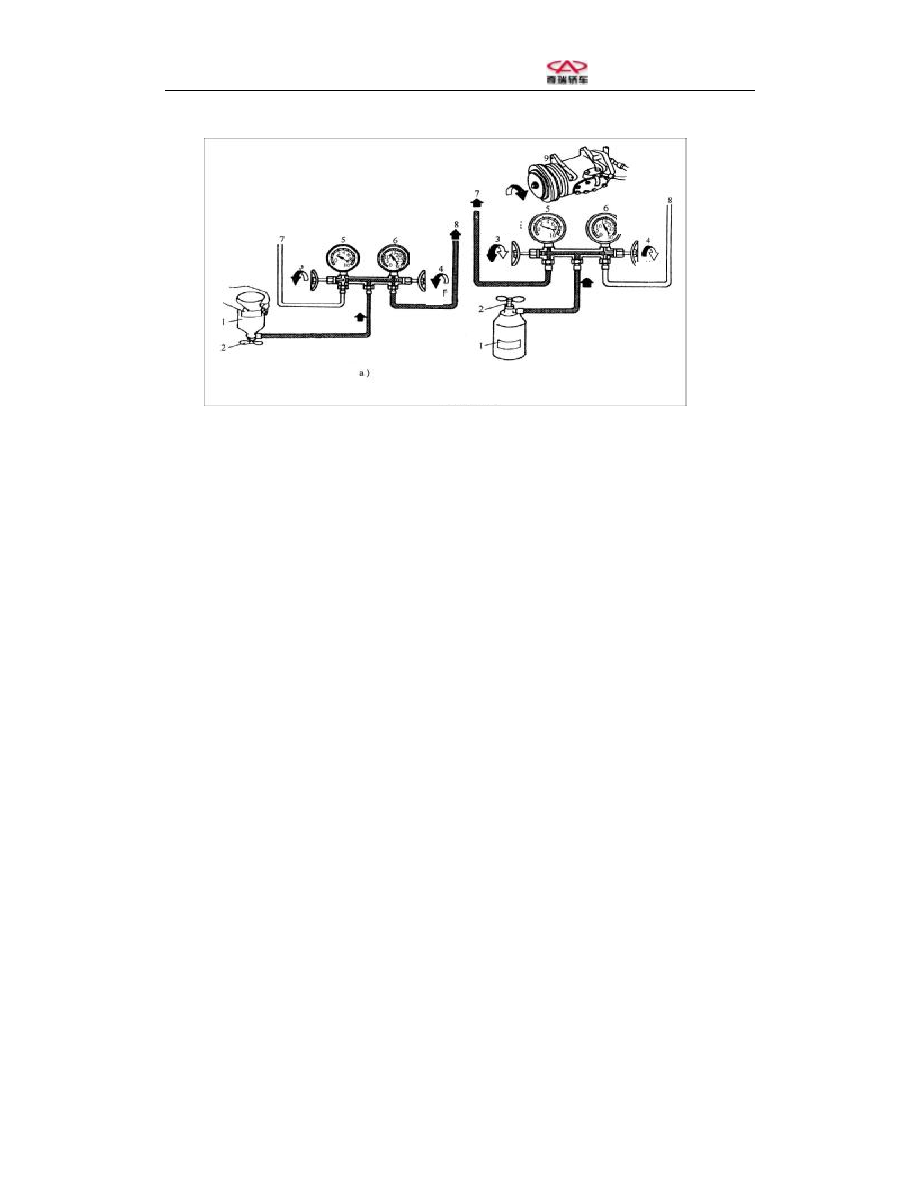Chery B11. Manual - part 124

Chery B11 Service Manual
Air Conditioner-19
Charging the refrigerant
Low
pressur
e
ON
High
pressur
e
Low
pressur
e
High
pressur
e
OFF
OFF
OFF
1-Refrigerant tank
2-Unlock valve
3-Low-pressure manual valve
4-High-pressure manual valve
5-Low-pressure gauge
6-High-pressure gauge
7-Connect to low-pressure
service valve hose
8-Connect to high-pressure
service valve hose
.9-A/C compressor